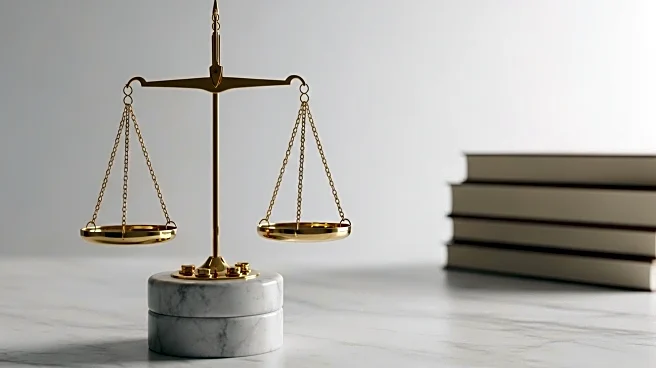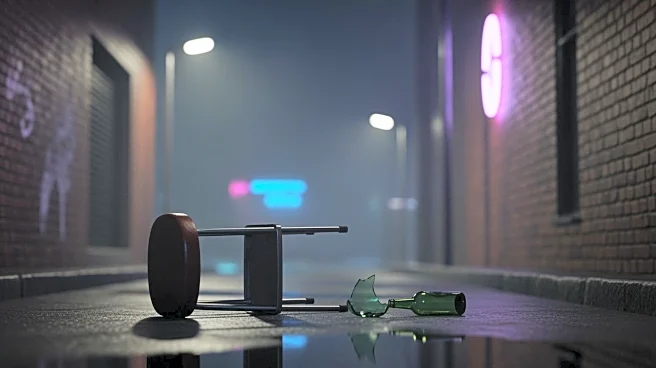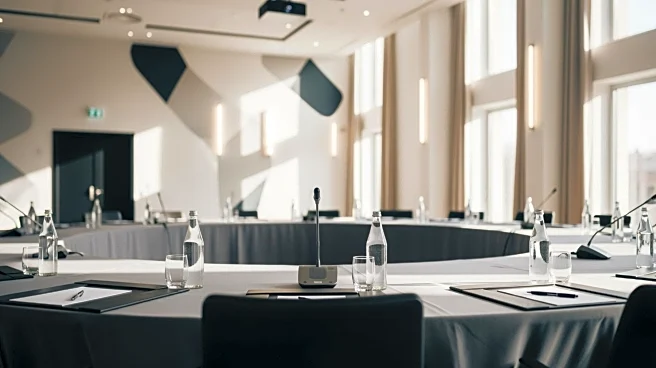What's Happening?
Supreme Court Justice Sonia Sotomayor recently appeared on 'The Late Show with Stephen Colbert' where she expressed her frustration with her conservative colleagues on the Supreme Court. Despite these frustrations, Sotomayor emphasized the importance of finding the good in people, a lesson she attributes to her mother. During the show, she also promoted her new children's book, 'Just Shine! How to Be a Better You.' Sotomayor, nominated by President Barack Obama and confirmed in 2009, is one of the three justices on the current Court nominated by a Democrat. She also appeared on 'The View,' where she discussed the implications of the Supreme Court's decisions, particularly the overturning of Roe v. Wade, warning about the long-term effects of changing legal precedents.
Why It's Important?
Justice Sotomayor's comments highlight the ideological divide within the Supreme Court, which has significant implications for U.S. law and society. Her remarks underscore the challenges faced by liberal justices in a predominantly conservative court, especially concerning decisions that affect fundamental rights and freedoms. The discussion around the overturning of Roe v. Wade and other rulings by the conservative majority reflects ongoing debates about judicial activism and the role of the Supreme Court in shaping public policy. Sotomayor's perspective offers insight into the potential risks associated with altering established legal precedents, which could impact future legislative and judicial actions.
What's Next?
Justice Sotomayor's comments may prompt further public discourse on the role of the Supreme Court and its impact on American society. As the Court continues to hear cases, the ideological balance and its influence on rulings will remain a focal point for legal analysts and policymakers. The release of Sotomayor's book may also contribute to broader discussions about personal development and resilience, themes she promotes through her public appearances. Stakeholders, including legal experts and civil rights advocates, may continue to monitor and respond to the Court's decisions, particularly those affecting civil liberties and social justice.
Beyond the Headlines
Sotomayor's approach to collegiality amidst ideological differences raises questions about the dynamics within the Supreme Court and the importance of interpersonal relationships in high-stakes environments. Her emphasis on finding the good in others suggests a strategy for maintaining professional relationships despite deep-seated disagreements. This perspective may influence how justices interact and collaborate on cases, potentially affecting the Court's decision-making process. Additionally, her warnings about precedent changes highlight the ethical considerations of judicial decisions and their long-term societal impacts.









